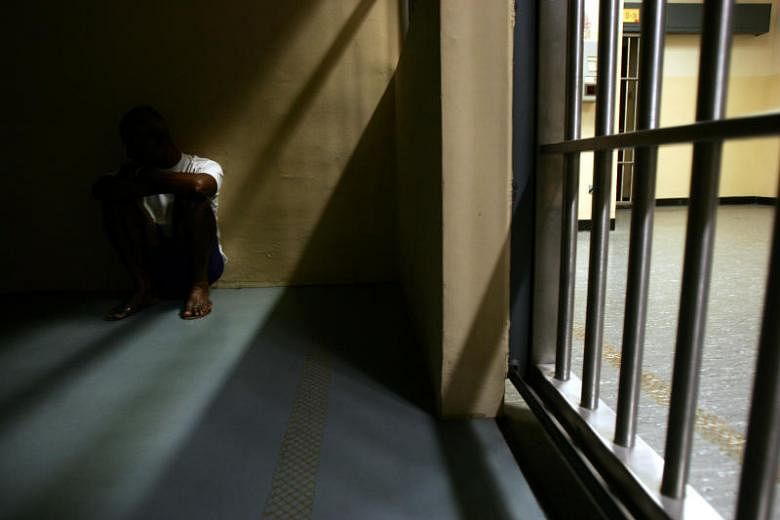SINGAPORE - The proposed use of mechanical restraints such as handcuffs and leg braces on young offenders was a concern for two MPs, who asked about its effect during a parliamentary debate on amendments to a Bill on Tuesday (Sept 3).
Such an act could add to the trauma experienced by a child, and seemed antithetical to the spirit of rehabilitation, said Ms Rahayu Mahzam (Jurong GRC).
Nominated MP Anthea Ong questioned the need for mechanical restraints, calling it "disturbing", given the psychological risks and effects on the use of physical restraints.
Both MPs were among five who raised concerns or sought clarifications about the Children and Young Persons (Amendment) Bill, while expressing support for it. The debate will continue on Wednesday.
The Bill had proposed that Ministry of Social and Family Development (MSF) officers working in Youth Homes could use these restraints to enhance safety and security, and prevent incidences of escape, self-injury or injury to others.
"In the very same Bill that recognises emotional harm as a form of ill-treatment, a new Section 68A proposes the use of mechanical restraints on children and young persons," said Ms Ong.
Ms Rahayu said: "I'm a little bothered by the possible scenarios and the impact such action would have on the children or young persons restrained".
She asked what the standard operating procedures would be for the use of this power and what processes and checks in place to prevent its abuse.
On the topic of youth offenders, Ms Sylvia Lim (Aljunied GRC) sought clarification on the placement of young offenders in juvenile rehabilitation centres or reformative training.
The Bill suggests that a young first offender between the ages of 14 and 18 can be sent to reformative training if the Youth Court believes the offender "is of so unruly a character that the offender cannot be safely detained in a juvenile rehabilitation centre or a place of detention".
She questioned if the intention was to require that the young person had been through a juvenile rehabilitation centre before and had not benefited, or if it was intended to empower the Youth Court to order reformative training, even if the offender had never been through a juvenile rehabilitation centre.
The second intention would be controversial, said Ms Lim.
Two MPs focused on the enhanced support the Bill would provide for the young and vulnerable.
Mr Christopher de Souza (Holland-Bukit Timah) sought clarifications on the specific examples of the parental emotional or psychological abuse inflicted on children that are given in the suggested Bill.
For instance, such abuse would include confining a child or young person in "any small space" for the purposes of discipline or if the parent or guardian influences the child to develop "self-destructive, anti-social, criminal, deviant or other maladaptive behaviour".
Mr de Souza asked Minister for Social and Family Development Desmond Lee: "Would the Minister elaborate on what is intended by the phrase 'any small space'?"
He also asked to clarify what "influence", "deviant" and "anti-social" behaviour meant.
Ms Lee Bee Wah (Nee Soon GRC) questioned the approach of MSF counsellors when they are called in to investigate a case of child abuse, as well as what counsellors and the police would take into consideration when recommending an offender for court action.
"To me, the main thing is to look at how we can help reconcile the child with the parent," she said.


